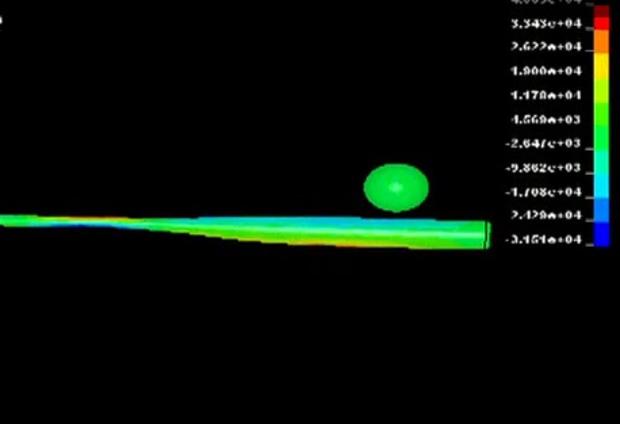Baseball myths shattered in science lab
Sometimes sports fans are physics geeks and they tend to look at things a little differently.
Anyone who watches ESPN is familiar with Sports Science - the series that breaks down the momentum and friction behind everything from collisions at home plate to golf swings in the rough.
Now, scientists at Washington State University have joined the sports physics fray by attempting to shatter some time-honored baseball myths.
As detailed in Popular Mechanics, a nuclear physicist and a mechanical engineer used some bats, balls and an air cannon to separate the fact and fiction surrounding corked bats, juiced balls and humidors.
While the research is bogged down with such mind-numbing terms as "polycarbonate sabot" and "coefficient of restitution," the findings are enlightening.
According to the scientists, the trio of myths breaks down like this:
1) Corked bats don't work - they increase bat speed but decrease how far the ball travels.
2) Humidors do work - increasing humidity (as the Colorado Rockies began doing to slow down the astronomical number of home runs at Coors Field) can trim the flight of a fly ball by 14 feet.
3) There are no "juiced" balls -- baseballs from 2004 (near the tail-end of the so-called "juiced" era) performed the same as the balls from the late 1970s.
Watch a video about Washington State's "bat lab" here:
